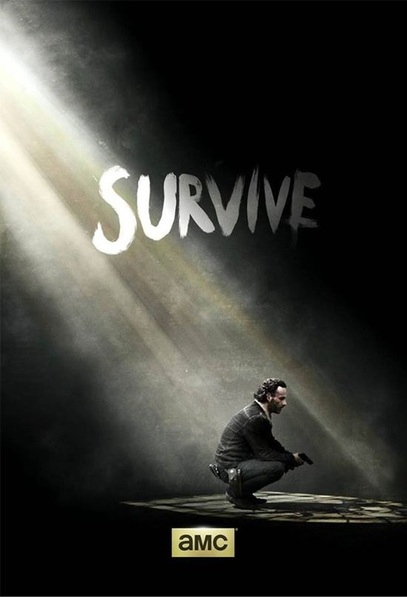
But my teenaged son urged me to watch it. From the first episode, I was hooked.
I found myself irresistibly drawn to the sheer anxiety of the show. The sawing terrorized theme music, the ever-present sense of dread, the images of loss and devastation. I was overcome by a strange familiarity.
Why would a cancer patient find The Walking Dead evocative? Psychologists (and I am one) have a word for this defence mechanism: “sublimation,” in which overwhelming thoughts are channelled into fantasy. Somehow, in this show about catastrophe and fear, I see a reflection of my own cancer experience. Seeing danger and disaster externalized is bizarrely soothing and companionable – I am not the only one whose world might end, who struggles to make it through the day, and who must be ever-vigilant against an impossible enemy.
I feel less alone when I see those fictional characters find within themselves the grim determination to survive. In a recent episode, Rick and his band of survivors are staggering exhausted down the road, barely distinguishable from the Zombies who shuffle behind them. Yes, I recognize it - the fatigue of chemotherapy is just like that. But the characters push forward, and face things they once thought too gruesome to contemplate. My book The Cancer Olympics relates what this is like: one does what one must to stay alive, even the unthinkable.
The Walking Dead conveys to us that life is worth any price, any effort, any distance. So with all its images of death and brutality, it still speaks to me. Dare I say it? - it inspires me. Perhaps it is laughable to think that a TV show about a Zombie Apocalypse would be therapeutic. But that, to me, it the nature of the best art. It tugs on our deepest fears and yearnings, and leads us to the right road.
I am rooting for you, Rick.
The Cancer Olympics is available from Amazon and Indigo. Buying from the FriesenPress Bookstore maximizes the donation to cancer support programs.
 RSS Feed
RSS Feed